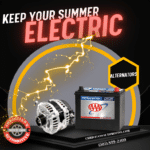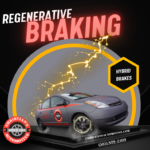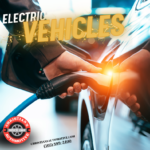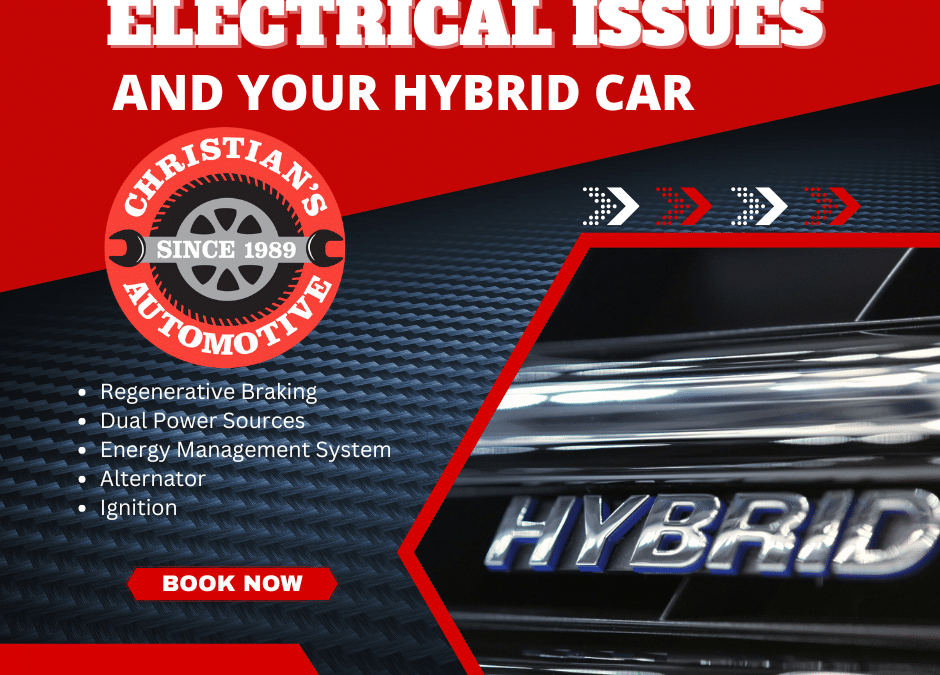
Keep Your Summer Electric
June 17, 2024
Understanding the Impact of Summer Heat on Your Car Battery
June 30, 2024Exploring the Advanced Systems in Hybrid and Electric Vehicles
As we continue to embrace sustainable transportation solutions, understanding the electrical systems in hybrid and electric vehicles becomes increasingly important. At Christian’s Automotive, we aim to keep our customers informed about the latest advancements in automotive technology. Let’s take a closer look at the systems that power these innovative vehicles.
Hybrid Vehicles: Bridging the Gap
 Regenerative Braking: One of the standout features of hybrid vehicles is regenerative braking. When the driver applies the brakes, the electric motor switches to generator mode, converting kinetic energy into electrical energy. This energy is then stored in the high-voltage battery pack, enhancing overall efficiency.
Regenerative Braking: One of the standout features of hybrid vehicles is regenerative braking. When the driver applies the brakes, the electric motor switches to generator mode, converting kinetic energy into electrical energy. This energy is then stored in the high-voltage battery pack, enhancing overall efficiency.
Dual Power Sources: Hybrids combine the benefits of internal combustion engines and electric motors. The power control unit seamlessly manages the interplay between these two sources, optimizing performance and fuel efficiency. During low-speed driving or idling, the vehicle can operate solely on electric power, conserving fuel and reducing emissions.
Energy Management System: The energy management system monitors and regulates the flow of energy within the vehicle. It ensures that the battery remains charged and that the electric motor and internal combustion engine work harmoniously. This system plays a crucial role in maximizing the vehicle’s efficiency and performance.
Electric Vehicles: State-of-the-Art Automotive Technology
 High-Capacity Battery Pack: Electric vehicles (EVs) rely entirely on high-capacity battery packs to power the electric motor and all other electrical systems. These batteries can be recharged from external power sources, such as charging stations or home chargers, making EVs a zero-emission alternative to traditional vehicles.
High-Capacity Battery Pack: Electric vehicles (EVs) rely entirely on high-capacity battery packs to power the electric motor and all other electrical systems. These batteries can be recharged from external power sources, such as charging stations or home chargers, making EVs a zero-emission alternative to traditional vehicles.
Electric Motor: Unlike hybrids, EVs have a single power source—the electric motor. This motor delivers instant torque, providing smooth and rapid acceleration. The absence of an internal combustion engine means no tailpipe emissions, contributing to a cleaner environment.
Inverter: The inverter is a critical component in EVs. It converts the direct current (DC) stored in the battery pack into alternating current (AC) needed by the electric motor. This conversion is essential for the efficient operation of the vehicle’s electrical systems.
Charging Systems: EVs come with various charging options, including Level 1 (standard household outlet), Level 2 (240-volt outlet), and Level 3 (fast charging stations). These systems cater to different charging needs, from overnight home charging to rapid charging on the go.
Technology for the Future
Hybrid and electric vehicles represent significant advancements in automotive technology. By integrating sophisticated electrical systems, these vehicles offer improved efficiency, reduced emissions, and a more sustainable approach to transportation. At Christian’s Automotive, we are committed to supporting these innovations and ensuring our customers receive the best care for their advanced vehicles.




